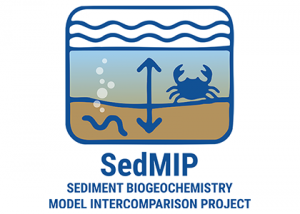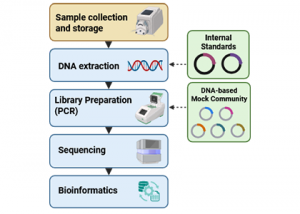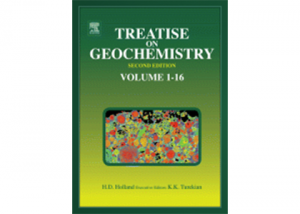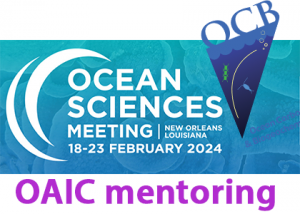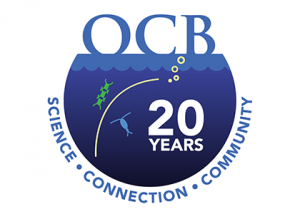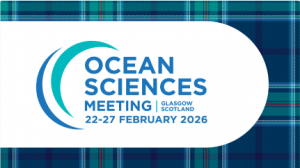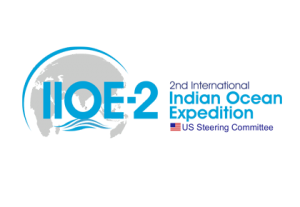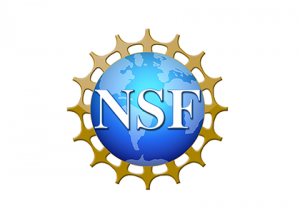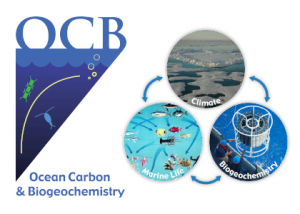OCB Postdoc Exchange!
A key objective of OCB is to train the next generation of ocean scientists and engage early career scientists in OCB and partner program meetings and training courses by providing travel and tuition support, networking, and mentoring opportunities.
Current and recent examples:
- Applications are still accepted for the Third Winter School on Ocean Acidification and Multiple Stressors hosted by OA-ICC in Monaco from 24 November to 5 December. This two-week training course will provide participating scientists with a thorough understanding about key concepts and experimental design used to study the impacts of ocean acidification in the context of additional stressors. This is a fully funded training opportunity open to students from both developed and developing countries. Organizers are targeting early career researchers with experience researching biological impacts of OA who would like to expand to multiple driver research. Note that applications must be sent through the national authorities of the applicant’s country, so applicants should build in some extra time to account for this step. Full information on the course can be found on the OA-ICC News Stream. For specific questions about the application process please reach out to Lina Hansson (l.hansson@iaea.org) or Carolina Galdino (c.galdino@iaea.org).
- GOOD-OARS Summer School, Penang Malaysia, November 4-11 2025. The school will be hosted by the Centre for Marine and Coastal Studies of Universiti Sains Malaysia (CEMACS) and is established under the Global Ocean Oxygen Decade (GOOD) and Ocean Acidification Research for Sustainability (OARS) programmes of the UN Ocean Decade. It aims to train the next generation of ocean oxygen and acidification scientists and researchers in the foundations of both fields, with instruction and lectures from world experts in a friendly setting for discussion.
- Apply for SOLAS Summer School 2026 Deadline: 31 August 2025
The SOLAS Summer School 2026 will take place from 9-27 March 2026 at Centro Nacional de Pesquisa e Conservação da Biodiversidade Marinha do Nordeste (CEPENE) in Tamandaré, Pernambuco (PE), Brazil. Submit your application here. For students without access to Google Forms please download the form and email your application to solasschool@xmu.edu.cn.For more details, please visit the Summer School website: https://www.solas-int.org/events/solas-events/summer-school-2026.html
- Annual OCB summer workshop
- OCB scoping workshops
- Gordon Conference in Chemical Oceanography
- IMBeR IMBIZO Meetings (odd years)
- IMBER ClimECO Summer Schools (even years)
- SOLAS Summer Schools
- International Ocean Colour Coordination Group (IOCCG) Lecture Series
- International Ocean Colour Science Meeting (IOCS)
- Cornell Satellite Remote Sensing Course
- Univ. Maine Ocean Color Remote Sensing Course
- Training courses on ocean acidification
- Training courses on biogeochemical sensors
OCB strives to highlight the work of students and postdocs at its meetings and provide opportunities for interacting with federal agency managers and other scientists. OCB also maintains an early career position on its Scientific Steering Committee (SSC).
Early Career Opportunities & News
- Core Fulbright U.S. Scholar Program
- Young Earth System Scientists community
- View our Jobs & Postdocs page for current openings
- View our Student Opportunities page for undergraduate, MS and PhD listings
Pathways to Science: Early Career Fellowships & Scholarships
Recommended resources
A new OCB activity is underway: SedMIP: Sediment Biogeochemistry Model Intercomparison Project. Learn more and participate in this collaborative effort to systematically evaluate and improve benthic biogeochemical models: Attend the Town Hall at OSM26: TH23A: Advancing Benthic Modeling: Introducing SedBGC_MIP, a Community-Driven Model Intercomparison Initiative TUESDAY, February 24, 12:45-1:45p GMT in Hall3. The Abyss – […]
Read MoreThis new activity has just launched and there are multiple opportunities to get involved. →Sign up and nominate speakers for the bi-monthly webinar series. Self-nominations are encouraged. →Apply to join the working group. Participants will be expected to prepare and analyze samples for 16S or 18S sequences and attend a synthesis meeting either in-person or […]
Read MoreSOLAS and Ocean–Land–Atmosphere Research (OLAR) are pleased to invite submissions to a special section entitled “Greenhouse Gas Budgets Across the Land–Ocean Continuum” throughout 2026. Greenhouse gas (carbon dioxide, methane, nitrous oxide) uptake, production and emission rates in near-coastal systems remain highly uncertain, yet their quantification is crucial to both adequately assess domestic and global inventories […]
Read MoreStanley, R. H. R. and Bell, T. G.: “Air-sea gas exchange and marine gases”, in: Treatise in Geochemistry, 3rd Edition ed., edited by: Andbar, A., and Weis, D., Elsevier, 2024. Read it here
Read MoreDear members of the air-sea interaction community, We invite you to participate in a low time-commitment, flexible and hopefully helpful mentoring event at the Ocean Sciences Meeting in Glasgow. We are setting up a near-peer mentoring program. We expect it to be about a 2 hour commitment for mentors or mentees – spending a bit of time […]
Read MoreOCB turns 20! Please share how OCB has impacted your career trajectory Tell us how OCB has impacted you
Read MoreEvents & Workshops (full list) – includes lots of early career support! Demystifying the Tenure Track Pathway (Sunday) Ocean Science Education and Outreach: Broadening the Reach of Your Science (Sunday) #ResearchLifeHack: Building the Ocean Data FAIR Essentials (Discovery, Interoperability, Excellent Documentation, Open Licensing) (Sunday) NASA Ocean Programs Town Hall TH13E – Monitoring the […]
Read MoreIIOSC – 2025, International Indian Ocean Science Conference – 2025: Celebrating 10 years of the Second International Indian Ocean Expedition 1-5 December 2025 at INCOIS, Hyderabad, India Website: https://iiosc2025.incois.gov.in/ Important Dates Abstract Submission opens: 10 Jun 2025 Abstract submission closed: 26 Aug 2025 Abstract Acceptance: 10 Sep 2025 Registration Opens: 10 Sep 2025 Last Date […]
Read MoreNSF Ocean Sciences Office Hours September 30, 3-4:30 PM (ET) Staff and division leadership will share information and updates on preparing proposals, address commonly asked questions, and answer yours. These office hours webinars will not be recorded. Register https://nsf.zoomgov.com/webinar/register/WN_yu5jE4EWQl2FyUZ1x2LEAw?utm_medium=email&utm_source=govdelivery#/registration
Read MoreOCB is seeking nominations for new Scientific Steering Committee (SSC) members, including a new early career member! The term begins in January 2026. The following SSC members are scheduled to rotate off at the end of 2025: Yige Zhang (formerly Texas A&M University) – paleoceanography and paleoclimatology; organic and stable isotope geochemistry; global biogeochemical cycles […]
Read More
